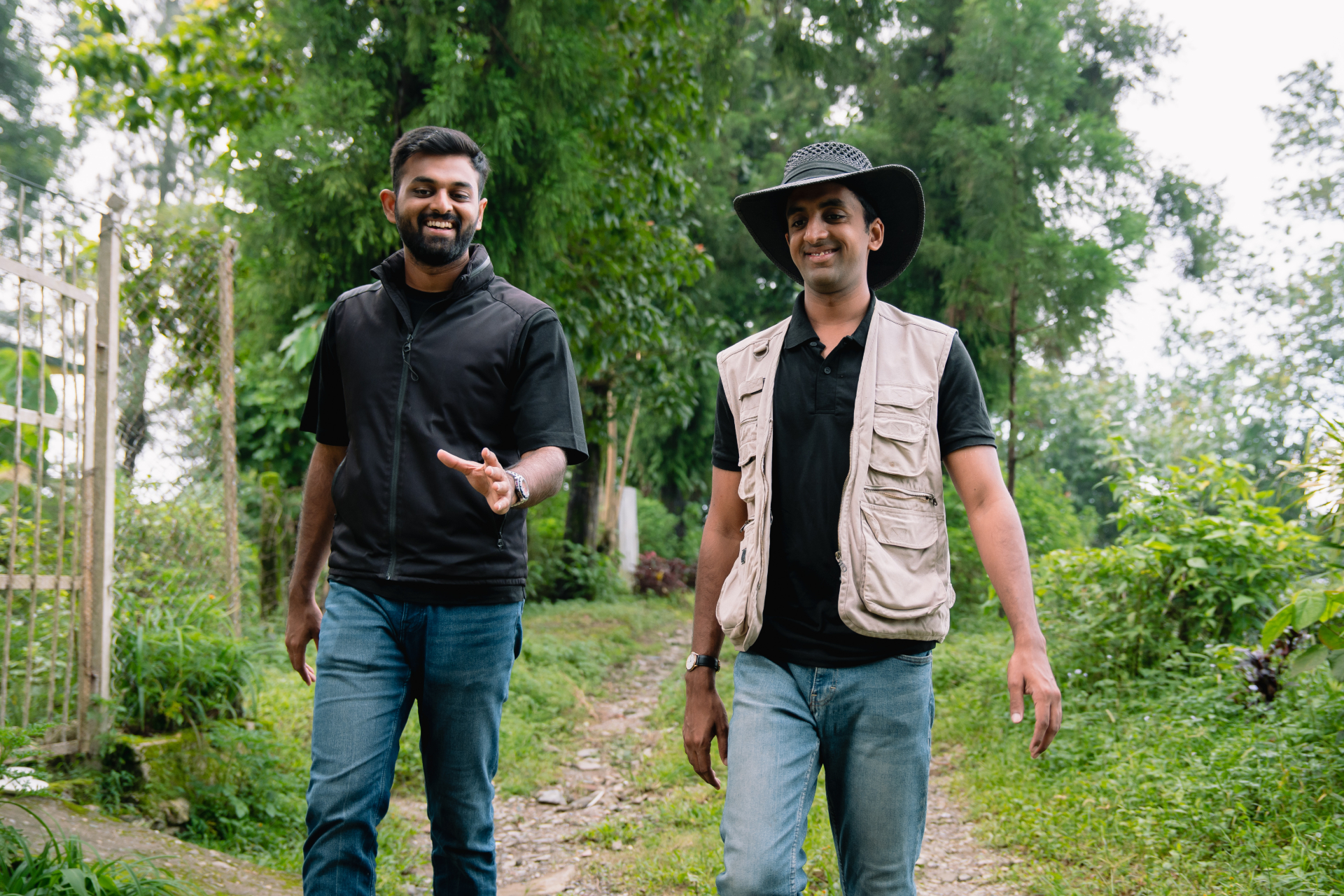In a remarkable turn of events, a family tea estate has transformed into a pioneering climate initiative, successfully raising $12 million in seed funding to expand its carbon dioxide removal efforts in India. This climate-tech startup employs enhanced rock weathering techniques on agricultural lands, effectively sequestering carbon for millennia. The funding round was spearheaded by an influential investor known for his contributions to robotics and artificial intelligence.
The story began in May 2020 when siblings Shrey and Sparsh Agarwal embarked on a 16-hour journey from Kolkata to Darjeeling, a region famed for its tea cultivation nestled in the Himalayan foothills. They anticipated a farewell to their family’s struggling tea estate, Salem Hill, which was on the brink of bankruptcy. However, this visit sparked the inception of their innovative venture, officially launched in late 2023.
Initially, the Agarwal brothers sought to explore carbon markets as a means to rejuvenate their family business and provide financial support to other tea estates in the area. During their research, they stumbled upon enhanced rock weathering, a method that could potentially shift Darjeeling’s narrative from vulnerability to climate change to a leader in climate action.
“We realized that many carbon projects in India focus on avoidance rather than removal, resulting in low-quality credits,” Sparsh shared in an exclusive interview, highlighting the need for more effective solutions.
Last year, the startup initiated a pilot project on their family estate, covering approximately 500 acres. They have since expanded their operations in North Bengal, broadening their focus to include rice and bamboo farms, with ambitious plans to scale up to 500,000 hectares.
By 2030, the startup aims to achieve the removal of 5 million tons of carbon from the region, as stated by Sparsh in a recent discussion.

The co-founders, Shrey and Sparsh Agarwal, are committed to deploying enhanced rock weathering techniques using waste basalt rock dust sourced from local mines and quarries in Eastern India. This rock dust, a byproduct of the construction industry, is applied to farmland where it interacts with rainwater to sequester carbon dioxide while enriching the soil with essential micronutrients, thereby enhancing fertility and crop yields. The chemical reaction between rainwater and basalt dust leads to the formation of stable bicarbonate ions, which are stored in the soil and eventually transported to the ocean, where they settle as calcium carbonate, effectively locking away carbon for over 10,000 years.
To transport the specialized rock dust from its source to agricultural fields, the startup utilizes existing freight transportation systems within the tea industry, relying on rail and diesel trucks. This approach minimizes emissions associated with dedicated rock processing by utilizing waste materials from current mining operations.
Rather than relying solely on basalt dust, the startup has innovated a proprietary blend of basalt and organic components, dubbed Hari Maati (meaning ‘green soil’ in Hindi), to encourage farmers to apply it to their fields.
With an estimated carbon credit valuation of $270 per metric ton, Sparsh noted that this is significantly more affordable than direct air capture credits, which can reach around $800 per ton. The startup anticipates further cost reductions within the next 36 to 48 months.
The company employs a three-tier measurement system to assess the effectiveness of its carbon removal efforts. This includes tracking the weathering process, analyzing soil moisture levels, and monitoring groundwater and river conditions. Additionally, they utilize advanced modeling techniques powered by machine learning to accurately quantify carbon removal.
The startup’s methodologies align closely with standards set by recognized carbon removal registries, and they have received endorsements from various intergovernmental organizations.
With laboratories located in Darjeeling and Bengaluru, the startup employs a team of 25, including 8 to 10 PhD holders. Plans are underway to expand these facilities, enhance soil sample analysis, and establish a hardware studio for improved data collection through remote sensing technologies. The startup also aims to deploy ground sensors to gather insights more efficiently and cost-effectively, all supported by the recent seed funding.
Last year, the startup made headlines by securing a significant pre-purchase agreement and an advanced market commitment from a coalition of major companies. They have also formed strategic partnerships to further scale their enhanced rock weathering initiatives.
In less than a month, the startup is set to deliver its first carbon credits, marking a significant milestone in their journey towards impactful climate action.
